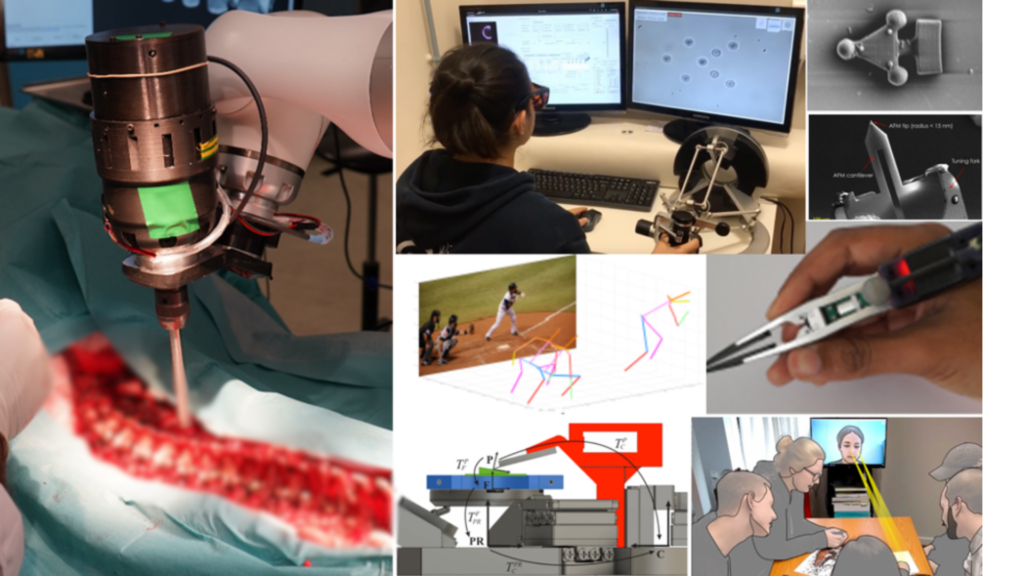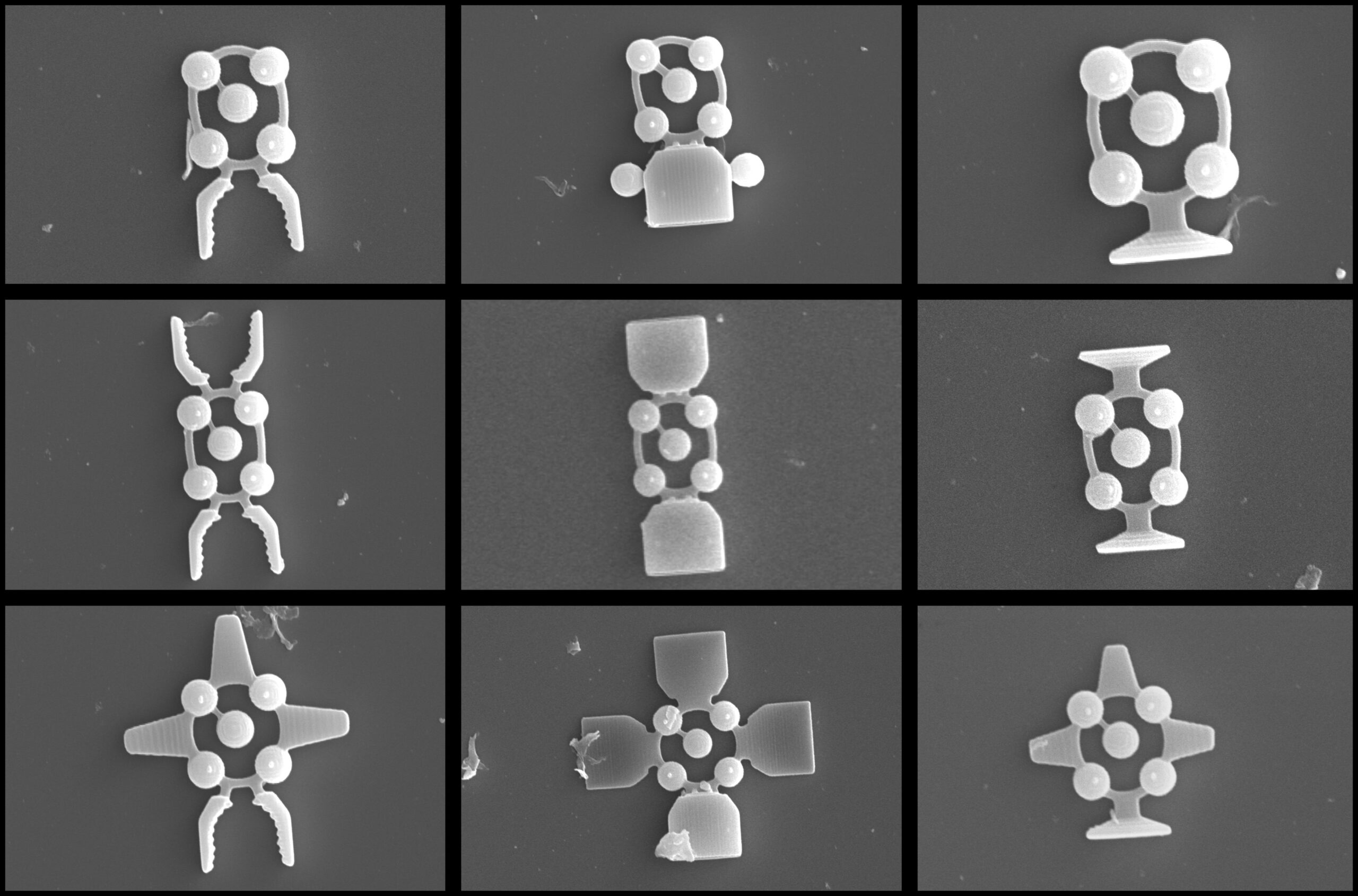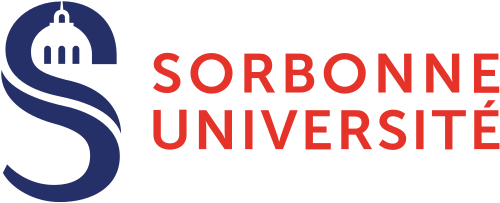The objective of the RPI-Bio team is to respond to the triple imperative of extreme and controlled gestures on living organisms (characterization, diagnosis, surgery, etc.). The team’s approach is global and multidisciplinary. It is based on a fundamental rapprochement between medical robotics, microrobotics, perception and AI. The team relies on a human perimeter associating roboticists, automaticians, computer scientists and practitioners (PU-PH and doctoral students-physicians).
Scientific problems
– Design of (micro)robotic systems: sensors, actuators, complete systems;
– Modeling and control of robotic systems: multi-physics, digital and hybrid (physics + AI) modeling, advanced control;
– Multimodal perception, interaction and HMI: haptics, multisensory perception, vision, force, virtual/augmented reality, tele-operation and comanipulation, tele-expertise, etc. ;
– Human learning: expert gesture transfer, gesture sequence analysis and generation;
– Machine learning: multi-task and multi-modal analysis, recalibration of partial and multi-modal information;
– Simulation and experimentation (ex vivo and in vivo) of the methods and systems implemented.

Scientific challenges and issues
Robotics: design, modeling and control:
– Complex robotic systems with multiple DDLs (rigid or flexible, small or large);
– Specific actuation (piezoelectric, AMF, polymer, magnetic, optical, etc.).
Human learning, HMI, perception and interaction:
– Interactions and interfaces for physical tasks in extreme situations: design, evaluation and human learning;
– Bilateral haptics (human in the loop).
Advanced control in a constrained and dynamic environment:
– Complex (surgery) and/or poorly understood (microworld) environment;
– High performance requirements in terms of precision, robustness and repeatability.
Contact scientifique : Brahim Tamadazte, RPI-Bio team manager



